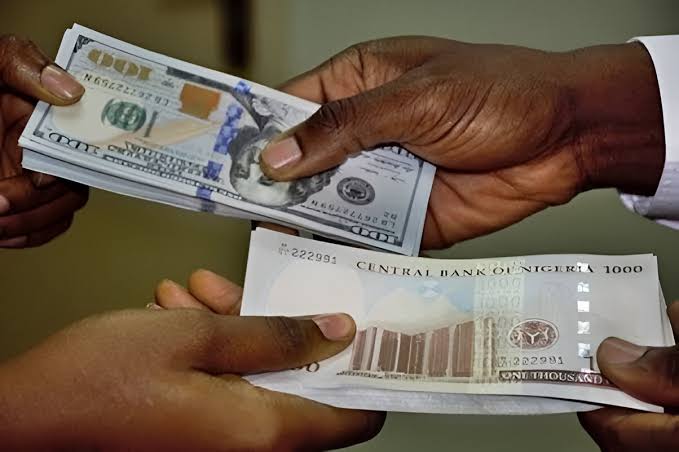
Naira Depreciates to N1,629 per Dollar in Official Market – What It Means for Nigeria

The Nigerian Naira has taken another hit, dropping to N1,629 per dollar in the official market, as reported in a recent post on X by Nigeria Stories on April 8, 2025.
Accompanying the news was a striking image of a hand clutching several Naira notes, a visual reminder of the currency's ongoing struggle.
This depreciation underscores the broader economic challenges Nigeria faces, a situation that has been brewing for years due to a combination of structural issues, policy missteps, and external pressures.
Let’s dive into what this means for the country, its people, and its economy.
For decades, Nigeria, Africa’s largest economy, has grappled with the persistent devaluation of its currency.
The Naira, once a symbol of economic promise, has lost significant value over the past 50 years, with some estimates suggesting a staggering 99.96% depreciation since the 1970s, according to a 2024 report by Capmad.
This alarming trend has been driven by a variety of factors, including Nigeria's heavy reliance on oil exports, which account for a substantial portion of its foreign exchange earnings.
However, declining oil revenues, coupled with global market fluctuations, have left the country vulnerable, creating a chronic shortage of dollars in the economy.
This scarcity has made it increasingly difficult for Nigeria to fund critical imports, driving up prices and fueling inflation.
The socio-economic impact of the Naira's depreciation is profound. For everyday Nigerians, the rising cost of imported goods—ranging from food to fuel—has eroded purchasing power, making it harder for families to afford basic necessities.
Businesses, too, are feeling the pinch, as the cost of importing raw materials and equipment has skyrocketed. Inflation, already a persistent issue, has worsened, exacerbating inequalities and pushing more people into poverty.
According to the World Bank, around 40% of Nigeria’s population of over 200 million live in extreme poverty, and the Naira's continued decline only deepens this crisis.
The Nigerian stock market has also taken a hit, with investors pulling back amid uncertainty and market volatility, further compounding the economic strain.
Efforts to address the Naira's woes have been ongoing, but progress has been slow.
When President Bola Tinubu took office in May 2023, he introduced sweeping reforms aimed at stabilizing the currency.
One of his first moves was to relax long-standing foreign exchange restrictions, a policy shift intended to unify Nigeria’s fragmented exchange rates and attract foreign investment.
The previous system, which involved multiple exchange rates, had been criticized for fueling speculation and creating a thriving black market for dollars.
While Tinubu’s reforms, often dubbed "Tinubunomics," have been praised by some as a necessary step toward long-term stability, they have also caused short-term pain.
The decision to float the Naira, for instance, has led to its further depreciation, as seen in the recent drop to N1,629 per dollar.
The root causes of the Naira's struggles are deeply entrenched. Years of economic mismanagement, coupled with systemic issues like corruption and inadequate infrastructure, have left Nigeria ill-equipped to handle external shocks.
Despite being Africa’s largest oil producer, the country has failed to diversify its economy, leaving it overly dependent on oil revenues.
Additionally, insecurity in the northern regions, where armed groups and militants operate, has disrupted economic activity and deterred investment.
Power outages and policy uncertainty further complicate the situation, making it difficult for businesses to thrive.
For Nigerians, the Naira's depreciation is more than just a statistic—it’s a daily reality that affects every aspect of life.
As the currency weakens, the cost of living continues to rise, and the dream of economic stability feels increasingly out of reach.
While Tinubu’s reforms may hold promise for the future, the immediate challenges are daunting.
Addressing the dollar shortage, curbing inflation, and fostering economic diversification will be critical to reversing the Naira's downward spiral and building a more resilient economy for Nigeria’s future.


